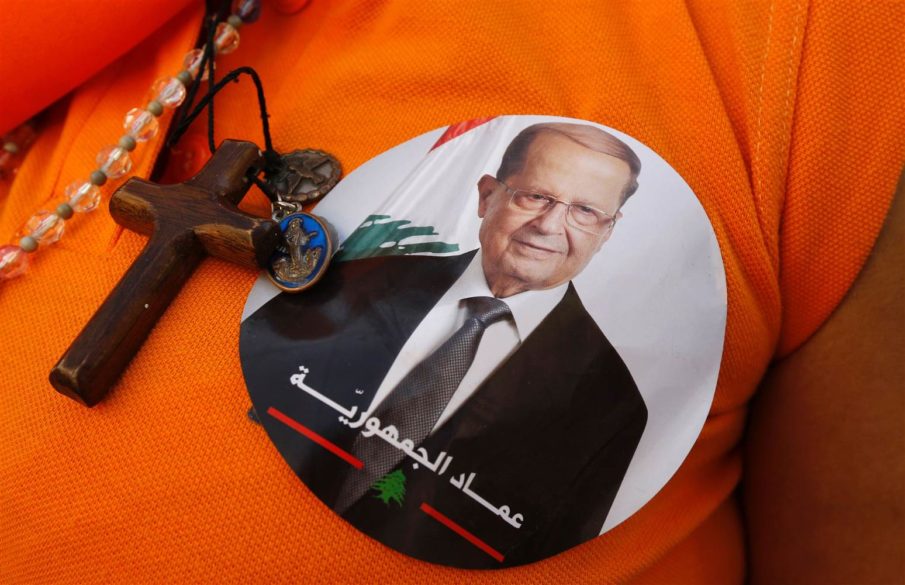Buckle up. We are about to dive head first down the rabbit hole of Lebanese politics, a task fraught always with both danger and head-spinning confusion. I will try to make this as simple to understand as possible — including, for myself — and will do my best to avoid making any mistakes in this run-down. Take a deep breath, everybody.
On Monday, October 31, 2016, 81-year-old former general Michel Aoun was elected president of Lebanon by that country’s parliament. The election of Aoun, a Maronite Christian and leader of one of the three principal religious-affiliated political parties in Lebanon (the Free Patriotic Movement), ends a 29-month long standoff, during which the country lacked a president.
The successful parliamentary vote for Aoun went forward only after a deal was struck with the leader of the Sunni political party (the Future Movement), Saad Hariri, who will now likely go on to become prime minister. It should be noted that the president is the head of state in Lebanon, while the prime minister is the head of government.
The third primary religious-political party in Lebanon, Hezbollah, a Shia political party with accompanying militia, backs Aoun and considers him an ally. Thus, Iran congratulated Aoun on his election, and in-fact welcomed it, per Al Arabiya English. And why wouldn’t they? The Iranian government (rightly) called it a win for Hezbollah, Tehran’s primary ally in Lebanon.
Politics in Lebanon is all kinds of confusing, especially for those of us here in the West who often see the world as divided between Christians and Jews on one side, and Muslims on the other. In Lebanon, there are those Christians who side with Hezbollah, and those others who side with the Sunni party. It is all part of a delicate and complex power-sharing arrangement that keeps a fragile political peace in the country.
Lebanon’s power-sharing system stipulates that the president should always be a Maronite Christian, the country’s largest Christian denomination; the prime minister should be a Sunni Muslim; and the speaker of parliament, a Shia Muslim. Despite a life-long opposition to Syria’s direct political influence in Lebanon (which is also a highly contested point of politics in Lebanon), Mr. Aoun formed a political alliance with Syrian ally Hezbollah back in 2006.
Aoun’s support has extended to siding with Hezbollah in supporting Syrian President Bashar Assad in the latter’s fight to stave off a Sunni-dominated uprising in Syria. The Lebanese Sunni Future Movement opposes Hezbollah’s intervention in Syria, as well as Hezbollah’s military power inside Lebanon, according to the BBC.
Furthermore, while we here in the United States (rightly) consider Hezbollah as primarily a terrorist organization, targeting Israeli and U.S. interests for decades, in Lebanon it is seen as a legitimate political party, and one that functions efficiently in Lebanese politics. Many Lebanese, however, do oppose the party’s continued militarization, and wish it to lay down its arms and function solely as a political party. Hezbollah has refused to do this.
The U.S. government has cautiously welcomed the news of the election of a president in Lebanon, and has stated that Mr. Aoun’s election is “a moment of opportunity,” again according to the BBC. This makes sense from the American point of view, which first and foremost considers political stability in Lebanon as in our national interest.
The bottom line of Aoun’s election, then, would seem to be that a fragile peace will continue in Lebanon, while the country continues to struggle politically over issues of Syrian refugees flooding in, Hezbollah’s continued military power, and how to engage with its many regional neighbors, not the least, Syria, Iran, and Israel.
You can exhale now.
Already have an account? Sign In
Two ways to continue to read this article.
Subscribe
$1.99
every 4 weeks
- Unlimited access to all articles
- Support independent journalism
- Ad-free reading experience
Subscribe Now
Recurring Monthly. Cancel Anytime.











COMMENTS